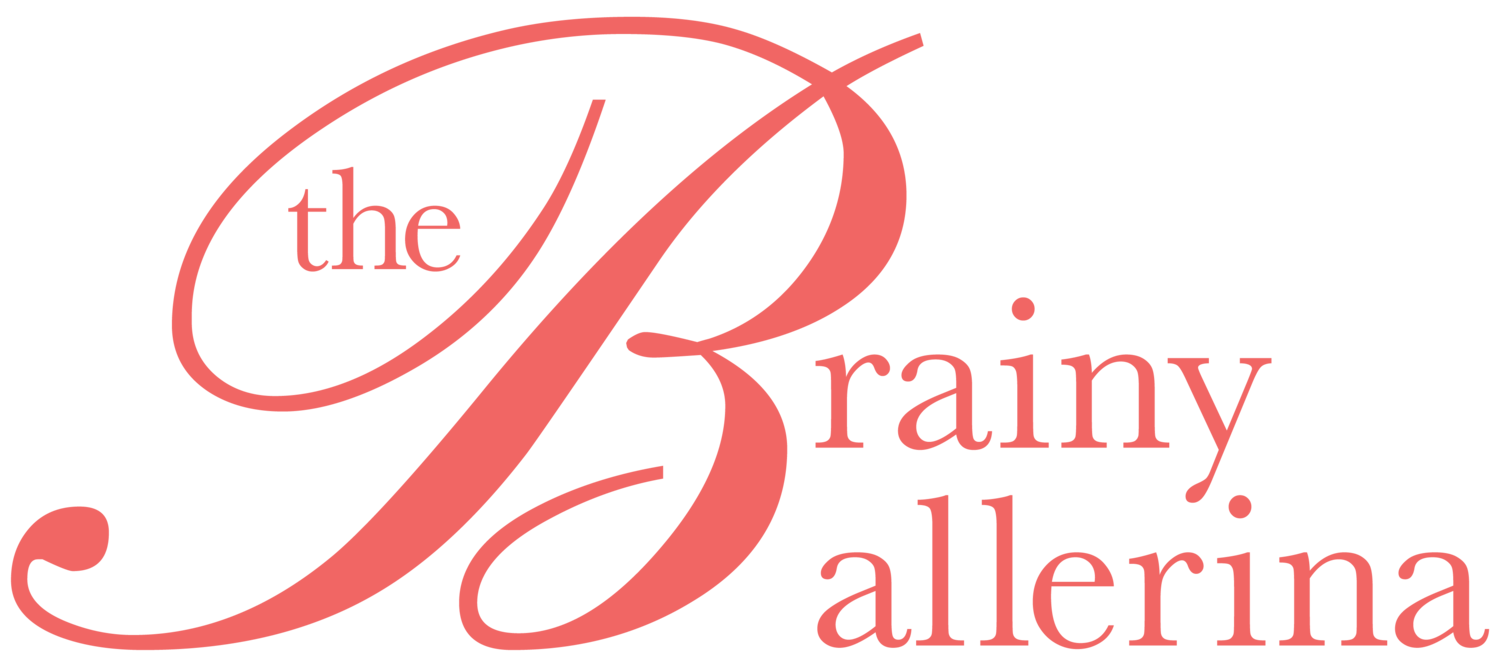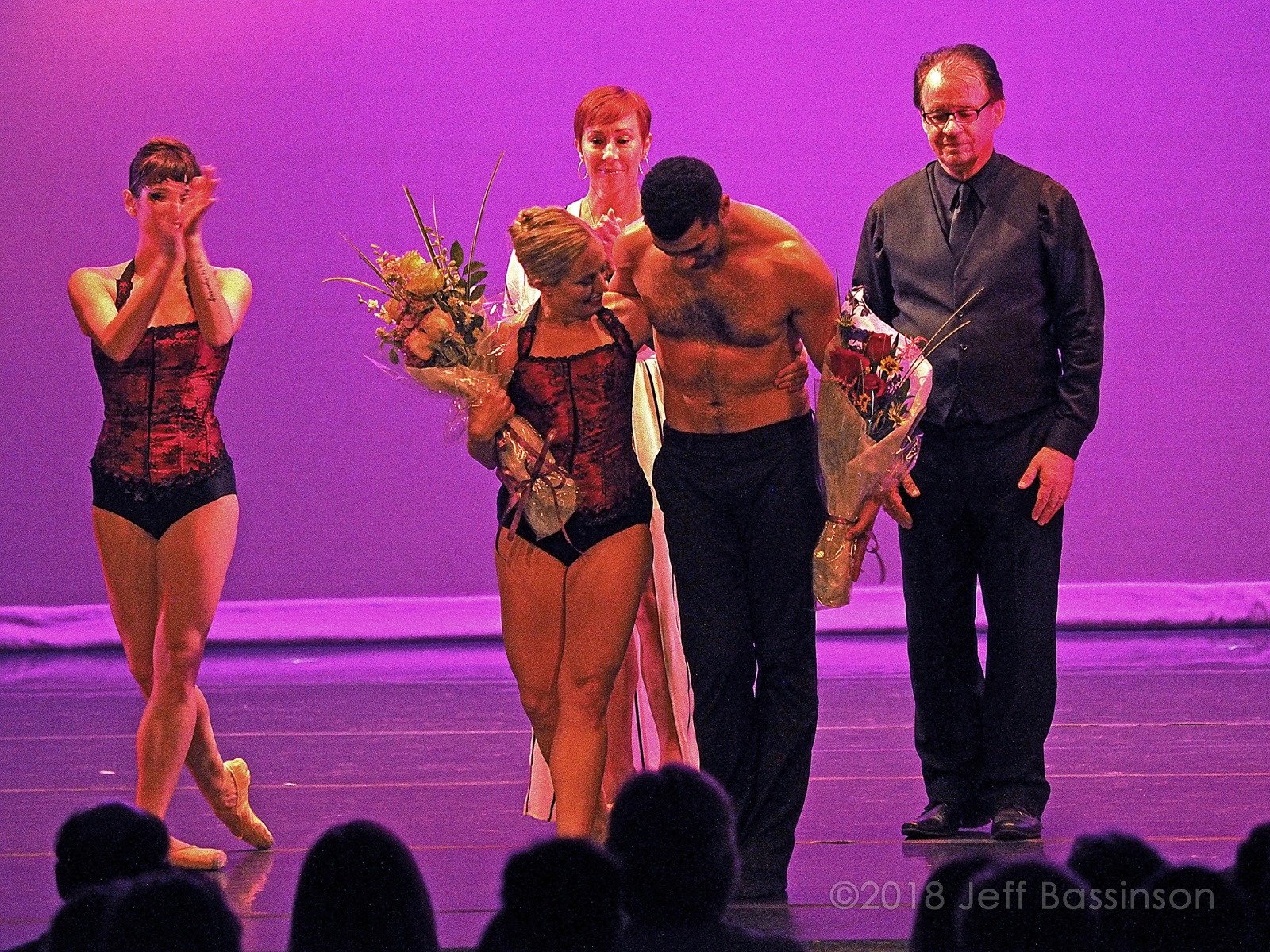What I Missed Most When I Retired from Dancing Professionally
My final bow as a professional dancer with Missouri Contemporary Ballet
📸: Jeff Bassinson
A dance career is a funny thing. You work your tail off preparing for your career for years…and then in the blink of an eye, it’s over.
For 20 years, I spent pretty much every waking moment at the studio. In high school and college, every night and weekend was spent in class and rehearsal. During my professional years, I was at the studio 11 hours a day, barely taking a break between running from rehearsal to teaching all night.
Sure, it was exhausting…but it was all I knew. And as much as I complained sometimes, I honestly loved it.
But over time I started to realize that I wasn’t feeling the same fulfillment in the studio as I used to. My body wouldn’t do what I was asking it to anymore. My husband and I had started talking about having kids, and I just couldn’t see myself doing both. I felt the pull of my life leading in a new direction, and I decided it was time to follow a different path.
I felt prepared for retirement. I had planned ahead. I knew exactly what my next steps were going to be. I was ready.
I anticipated missing performing, the feeling of warm stage lights, and the thrill of applause. I anticipated missing daily company class, the hour and a half each morning where I tuned out all distractions and focused completely on preparing my mind and body for the day. I anticipated missing the costumes, the photoshoots, the glitz, and the glam. But what I didn’t fully grasp is the one crucial element all of these things have in common - and that is what I would miss most of all.
The community.
I remember going to take company class after I retired. So many of my good friends were still dancing in the company and it was amazing seeing them in their element and sharing a studio once more. We had stood at the barre side by side every day for years. We had left blood, sweat, and tears (literally) on the dance floor. But somehow, I felt like an outsider.
I didn’t know the inside jokes anymore. I couldn’t commiserate about that terrible turn section or impossible-to-count musical phrase in the new ballet. I wasn’t battling the indescribable second-day soreness after a new choreographer comes in. Simply put - I wasn’t in the trenches anymore.
I realized that whether or not I liked it, the company was moving on without me. And that was hard to accept.
I think any dancer who has retired from the stage can resonate with the feeling of loss that comes with leaving behind your former life, and with that your community. For any dancer currently going through this, here are three resources I highly recommend to help ease the transition:
Pivot for Dancers
Pivot for Dancers is changing the conversation around career transitions to help pro dancers find meaningful work off the stage through resources, inspiration, and community.
Entertainment Community Fund
The Entertainment Community Fund (formerly The Actors Fund) offers a broad spectrum of programs, a calendar of workshops, support groups and online resources to support the unique, essential needs of all who work in entertainment and the performing arts. Geared specifically toward dancers, Career Transition for Dancers enables dancers to define their career possibilities while developing the skills necessary to excel in a variety of disciplines to thrive during all phases of their careers.
Second Act
Second Act is a non-profit mentorship network founded in 2021 by a team of former dancers looking to create a peer network for professional and personal coaching. Their primary objective is to connect current and former dancers to foster impactful conversations on how to transition from a dance career, apply to college, or discover and thrive in new professional avenues.
For a professional dancer, retirement comes about 25-30 years earlier than your average person. We have spent our whole careers smiling through the pain - but the loss of identity and community is an entirely new kind of pain. It’s OK (actually, it’s normal!), to feel a deep sense of grief, even if it was your choice to step away.
Time makes it better, but I don't think I'll ever stop missing the dressing room shenanigans, backstage laughs, and post-show hugs.
What helped me the most (besides the passage of time) was hearing other dancers share their stories. Sometimes just the knowledge that you are not alone is enough. It may take weeks, months, or even years, but I guarantee you will find new passions, community, and happiness. Dance may not be the focal point of your life anymore but always remember - once a dancer, always a dancer ♥️.
Meet the Author
Caitlin Sloan is a Dance Educator and Career Mentor based in Madison, WI.
Caitlin received her Bachelor of Arts in Dance from Grand Valley State University and Graduate Certificate in Nonprofit Management from the University of Missouri.
She danced professionally for nine years with companies including Ballet Tucson and Missouri Contemporary Ballet (now Mareck Dance). Caitlin has taught at schools all over the Midwest, most notably serving as Director of The School of Missouri Contemporary Ballet and Youth Company Director for Central Indiana Dance Ensemble. She is currently on faculty at the School of Madison Ballet.
Caitlin founded The Brainy Ballerina® in 2019, a virtual resource providing support and guidance for aspiring ballet dancers. Follow @thebrainyballerina on Instagram for your daily dose of dance career guidance and inspiration.
If you liked this post, you might also like:




